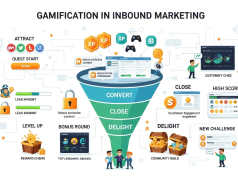In today’s digital landscape, inbound marketing has become the cornerstone of sustainable business growth. But with countless metrics available, how do you determine which ones truly impact your bottom line? Let’s cut through the noise and focus on the metrics that genuinely matter.
Why Traditional Metrics Often Mislead
Many marketers fall into the trap of vanity metrics—numbers that look impressive in reports but don’t translate to revenue. Page views, social media followers, and even raw traffic numbers can be misleading when viewed in isolation.
True data-driven marketing requires a more sophisticated approach. At InboundMarketo, we’ve discovered that successful growth strategies depend on connecting metrics directly to business outcomes.
Customer Acquisition Metrics That Drive Growth
The path from stranger to customer contains critical measurement points that indicate marketing effectiveness. These metrics reveal not just who’s visiting your site, but who’s becoming a valuable customer.
Conversion rate stands as the fundamental metric here. By tracking the percentage of visitors who take desired actions, you gain insight into your content’s persuasiveness and relevance. A rising conversion rate often signals growing market fit.
Customer acquisition cost (CAC) tells an equally important story. This figure represents your total marketing and sales spend divided by new customers gained. When tracked alongside customer lifetime value, you can determine the sustainability of your growth model.
Engagement Metrics Worth Your Attention
Not all engagement metrics deserve equal consideration. Rather than obsessing over likes or shares, focus on metrics that indicate deeper connection with your brand.
Time on page provides valuable context when analyzed properly. Visitors who spend several minutes consuming your content demonstrate genuine interest that can be nurtured toward conversion.
Returning visitor rate offers insight into your content’s lasting value. When people consistently return to your resources, you’re building the trust necessary for long-term business relationships.
Revenue-Focused Analytics
The ultimate test of marketing effectiveness lies in revenue generation. These metrics connect marketing activities directly to business growth.
Attribution modeling has evolved beyond simplistic first-touch or last-touch frameworks. Multi-touch attribution provides a more nuanced view of how different marketing touchpoints contribute to final conversions.
Marketing qualified leads (MQLs) that convert to sales qualified leads (SQLs) represent the essential handoff between marketing and sales teams. Tracking this conversion rate highlights the quality of leads your inbound efforts generate.
Implementing a Data-Driven Approach
Creating a truly data-driven marketing strategy requires more than passive metric tracking. It demands an active approach to measurement and optimization.
Start by establishing clear baselines for your key performance indicators. Without understanding your starting point, improvement becomes impossible to measure accurately.
Next, implement regular review cycles where marketing decisions directly respond to data insights. When metrics shift, your strategy should adapt accordingly.
Finally, ensure cross-departmental alignment on which metrics matter most. When marketing, sales, and executive teams focus on the same growth indicators, organizational momentum builds naturally.
Beyond the Numbers: The Human Element
Data-driven marketing doesn’t mean ignoring the human aspect of customer relationships. Rather, it means using metrics to better understand and serve your audience’s needs.
Customer satisfaction scores and net promoter ratings provide quantifiable ways to measure relationship quality. These metrics often predict future growth better than many traditional marketing measurements.
Moving Forward With Intention
As marketing technology continues evolving, the temptation to track everything grows stronger. Resist this urge and maintain focus on metrics that meaningfully connect to revenue and growth.
The most successful inbound marketers don’t merely collect data—they translate it into actionable insights that drive business forward. By focusing on the metrics that genuinely matter, you position your organization for sustainable growth in an increasingly competitive landscape.
When you’re ready to transform your marketing metrics into business growth, remember that measurement is just the beginning. The true power lies in how you respond to what the data reveals.




